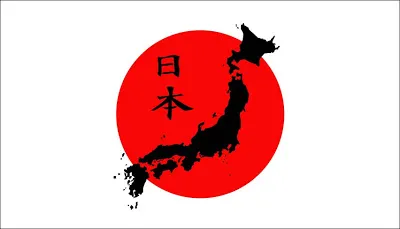
Planning is important. Period. No matter what you are doing, you should have some sort of plan. That DOESN'T mean that you can't be fluid in your decision making or that you need to strictly adhere to that plan, but you should at least be able to see a path to your goal.
I'm a research freak. If I'm into something I've likely spent hundreds of hours reading about it. Instead of reading novels, you will find me reading research articles or digging up information on whatever strikes my fancy at that particular moment. And before you ask: Yes, I am insane.
I spend way too much time researching and planning when I do something. When I travel I usually come up with a list of things that I'd like to do there through research, and then once I'm there I run through the list depending on the weather forecast and how I'm feeling that day. I tend to run my life that way: Make a plan, be fluid and roll with the punches, accomplish end result.
Same is true while I'm learning Japanese. I'm studying Japanese for several reasons (detailed later), but I want to get into the overall plan to learn Japanese.
This is a plan to learn Japanese:
1: Research and plan how to learn the language (the subject of this post)
2: Prepare the proper tools and cultivate the proper mindset (this never really ends)
3: Learn PRONUNCIATION using romanization and pronunciation guides
4: Learn the written phonetic components (Kana // Hiragana & Katakana)
5: Learn the KANJI (Chinese characters, but the Japanese version) MEANINGS
6: Learn GRAMMAR and how to compose sentences/words
7: Build up conversational vocabulary by leveraging and building upon the Kanji learned thus far
8: Study for and pass fluency tests
9: Party?
10 & Beyond: Leverage what I've learned in Japanese to learn Mandarin w/ traditional characters.
I am in the middle of step 5 currently (~1400 characters learned) and have marginal speaking skills at best. I started in December studying on and off in preparation for a trip to Japan in May of this year, but my motivation in general has waxed and waned over the past year in general due to some reasons that I'm not going to go into right now. I have recently (roughly 30 days ago) rededicated myself to studying as a sort of "self-improvement" project.
I would definitely recommend learning the writing system from the start if you plan on learning Japanese (or any of the Chinese script languages). Sure, you could get by with just spoken word and Kana, but you would still be functionally illiterate. I think that the Kanji is the hardest aspect of the language for a westerner to learn, but it's definitely worthwhile.
I tend to be of the mindset that if there is a difficult aspect of something you are learning that you will eventually need to learn anyways, it is better that you start making steps to learn it from the outset. For example, if you are a self-taught master of guitar but you have no knowledge of how to read music and understand theory (a difficult undertaking), chances are you're not ever going to learn it unless you are extremely determined to. It's far easier to learn it as you go from the beginning.
Yeah, I have personal experience with this one as well... Hard lesson learned.
(side note: Worst part is I actually used to be able to read music and knew some theory, but it was never for guitar -- derp)
Anyways, I think it's a pretty solid plan to learn Japanese. It's more or less adapted from this guy Niko's course on learning Japanese, which I would recommend as it has a lot of insights into the language. It's USD$37 for his course and well worth it (link below), although from what I understand he's coming out with an updated version soon which will have an increased price tag.
It's important to note that it would be worthwhile to analyze your motivations for learning the language. As I've said before, it's pretty hard to give consistent effort towards something if you have lackluster reasons for doing it.
Learning a language requires CONSISTENT, DAILY effort.
You can't take time off, you can't ever stop pushing. If you do, you will only set yourself back further. If you're feeling lazy or circumstances happen, make a point of still at least doing review so that your brain remains at least somewhat engaged in the language. If you fall behind it will be just that much harder to get started again.
I have my motivations for learning Japanese. Curiousity and a compulsive need to challenge myself are a big part of why I want to learn Japanese. The desire to be different and the general interest/kinship that I feel with the culture are other things that motivate me to learn it. Plus it will pay dividends if/when I learn Chinese, which is my stretch goal.

Pragmatically, it would make more sense to learn Spanish or something, but it doesn't suit me. What can I say, I am driven to understand my Hentai Anime(?). Whoops, better put back on my newsman fedora...
There's just so much strange stuff to come out of Japan, and that kind of appeals to me... because I'm strange too.
In a granular assessment, Japanese is a difficult and time consuming language to learn. But for me, it's easier to learn than Spanish -- Because I am INTERESTED in it.
I am very curious about the culture and how the language works.
We all have that ingrained curiosity in our heads. Pretty much every child in every culture and every language goes through a "why" phase, where they constantly are asking questions about everything. While the constant barrage of questions eventually fades away, the curiosity remains somewhere inside us.
The curiousity remains, but people tell themselves that they can't learn something new. I've heard many people say that the only way to become fluent in a language is to learn it as a child... from people who have never learned a language. There's a huge amount of examples to the contrary on the internet, and I don't think that they're some sort of brain freaks that can inexplicably learn things into adulthood.
No, It's not impossible to learn a language as an adult. People will tell you that because they believe that THEY THEMSELVES cannot do it. I don't think that any perceived slowdown in learning capacity is enough of an excuse to stop you from learning new things.
That's a fallacy.
Inside of us, there resides the need to be challenged. It's easy to get comfortable and avoid any struggles, but it's not particularly fulfilling. Overcoming challenges and obstacles is exciting and gives you a sense of accomplishment.
I am challenged by my studies every single day, and I always feel some small accomplishment when I've reached my goal for the day. That is, in it self, a small victory for me.
I can't wait for the big victories!
This is intended to be the first in a series about learning Japanese. It will include information about study tools, techniques for effective study and memorization, and (of course) information about the language itself.
I'll be talking more about pronunciation and the Kana or study tools next time, so stay tuned for that!
(or don't. It's your call, sucka)
-- Brains
(Braaaaiiinnnsss)
Sources:
Picture:
Japanese Flag silhouette
Frank Sinatra in a Fedora
Links:
http://courses.nihongoshark.com/p/hacking-japanese-study-guide
Tell him Brains sent you, he'll probably be confused by it and it will entertain me.